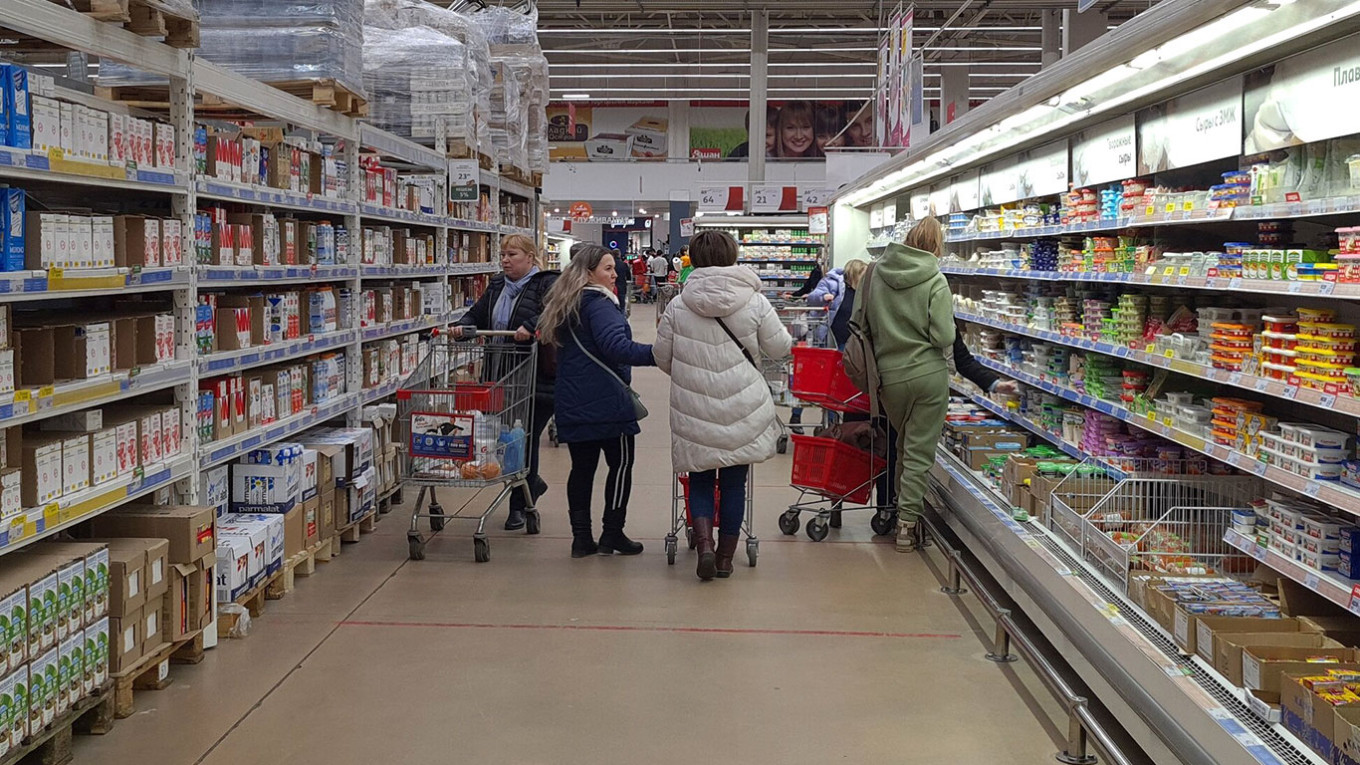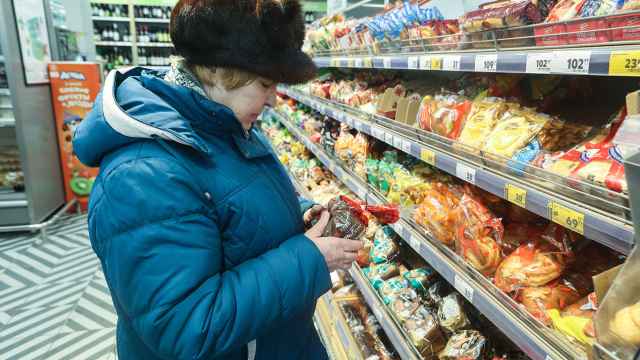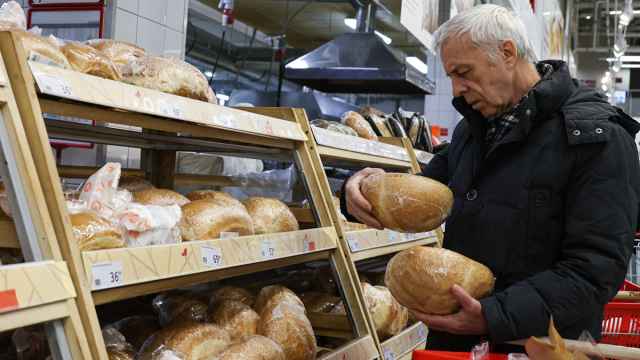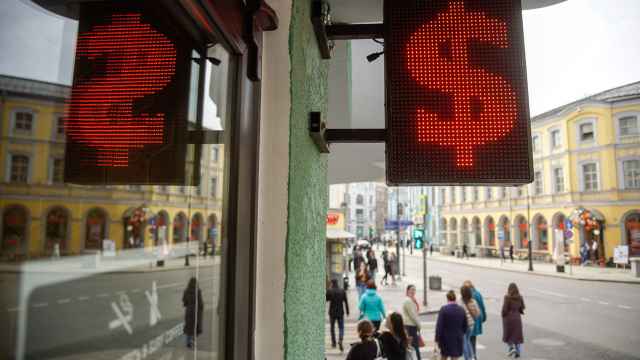President Vladimir Putin said Tuesday that Russia has been able to “get a grip” on inflation after data showed almost a month of no inflation.
“From the second half of May, price growth has stopped completely. Now inflation is at the zero mark,” Putin told a government meeting.
But while stable prices might sound like good news, some analysts have been suggesting the numbers are actually a worrying sign.
What happened?
The Russian State Statistics Service (Rosstat) said Wednesday that there has been no inflation in Russia since mid-May. For two of the last three weeks for which there is data, Rosstat said Russia actually recorded slight deflation.
The turn toward deflation comes after an inflation shock caused by Western sanctions and worries over the availability of key goods that led to panic buying in the wake of the invasion of Ukraine. Russia’s monthly inflation rose to a 20-year-high of 7.61 percent in March.
What does it mean for the Russian economy?
Economists agree that, if deflation continues, it should be seen as a sign of worse times to come. Traditionally, deflation is a sign of reduced demand in the economy - which means that a prolonged recession is likely looming.
“What Putin’s remarks actually mean is that the economy is getting worse,” analyst Nick Trickett told The Moscow Times.
“He is just trying to sell the public the idea that economic technocrats are going to do things that prevent prices of basic items like food from increasing.”
Trickett’s concerns were echoed by macroeconomic analyst Olga Belenkaya.
“Overall, a steady deflation or an inflation rate lower than the Central Bank’s target of 4 percent might be a signal of negative economic demand that could accelerate the economic decline,” Belenkaya told Altapress news agency Wednesday.
What does it mean for consumers?
Deflation might not necessarily be good news for Russian consumers as it could be a signal of higher levels of unemployment than those suggested by official figures.
“It can be a positive [trend] for consumers who still can afford to buy things but if that deflation is a result of contraction of economic activity that makes people earn less money, then it doesn’t suggest anything positive,” Trickett said.
What does it mean for retailers?
As incomes fall and demand continues to decrease, Russian retailers and manufacturers might move to decrease prices – although this is unlikely to last.
“[Retailers and manufacturers] most likely will make a decision to cut investments, production, and the number of employees. That, in turn, will lead to a decrease in incomes and demand — this is how a crisis spiral is set in motion,” Belenkaya said.
Russian retailers are particularly vulnerable given delivery logistics difficulties amid the ongoing war in Ukraine.
“Producers and people that are selling to consumers are seeing cost increases and have to figure out how much of that cost they can pass on to consumers,” said Trickett.
What does the future hold?
Predictions for the Russian economy remain pessimistic.
The Institute of International Finance (IIF) said this week that it expects more Western sanctions against Russia and long-term economic decline.
Further deflation would suggest that the Russian economy is “in free-fall when it comes to consumption,” said Trickett.
As the economic situation worsens, many analysts expect the Russian government to announce the withdrawal of more and more economic data from the public domain – and manipulate the published data in an attempt to hide the real picture.
“I am confident that they [the Russian government] are going to start controlling more extremely the data and information space for business and economic news,” said Trickett.
“It is pretty clear to me that things are [already] a lot worse than they are saying.”
A Message from The Moscow Times:
Dear readers,
We are facing unprecedented challenges. Russia's Prosecutor General's Office has designated The Moscow Times as an "undesirable" organization, criminalizing our work and putting our staff at risk of prosecution. This follows our earlier unjust labeling as a "foreign agent."
These actions are direct attempts to silence independent journalism in Russia. The authorities claim our work "discredits the decisions of the Russian leadership." We see things differently: we strive to provide accurate, unbiased reporting on Russia.
We, the journalists of The Moscow Times, refuse to be silenced. But to continue our work, we need your help.
Your support, no matter how small, makes a world of difference. If you can, please support us monthly starting from just $2. It's quick to set up, and every contribution makes a significant impact.
By supporting The Moscow Times, you're defending open, independent journalism in the face of repression. Thank you for standing with us.
Remind me later.







